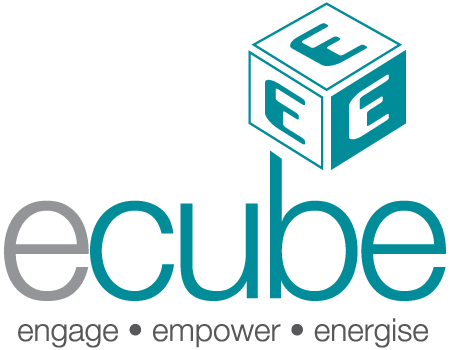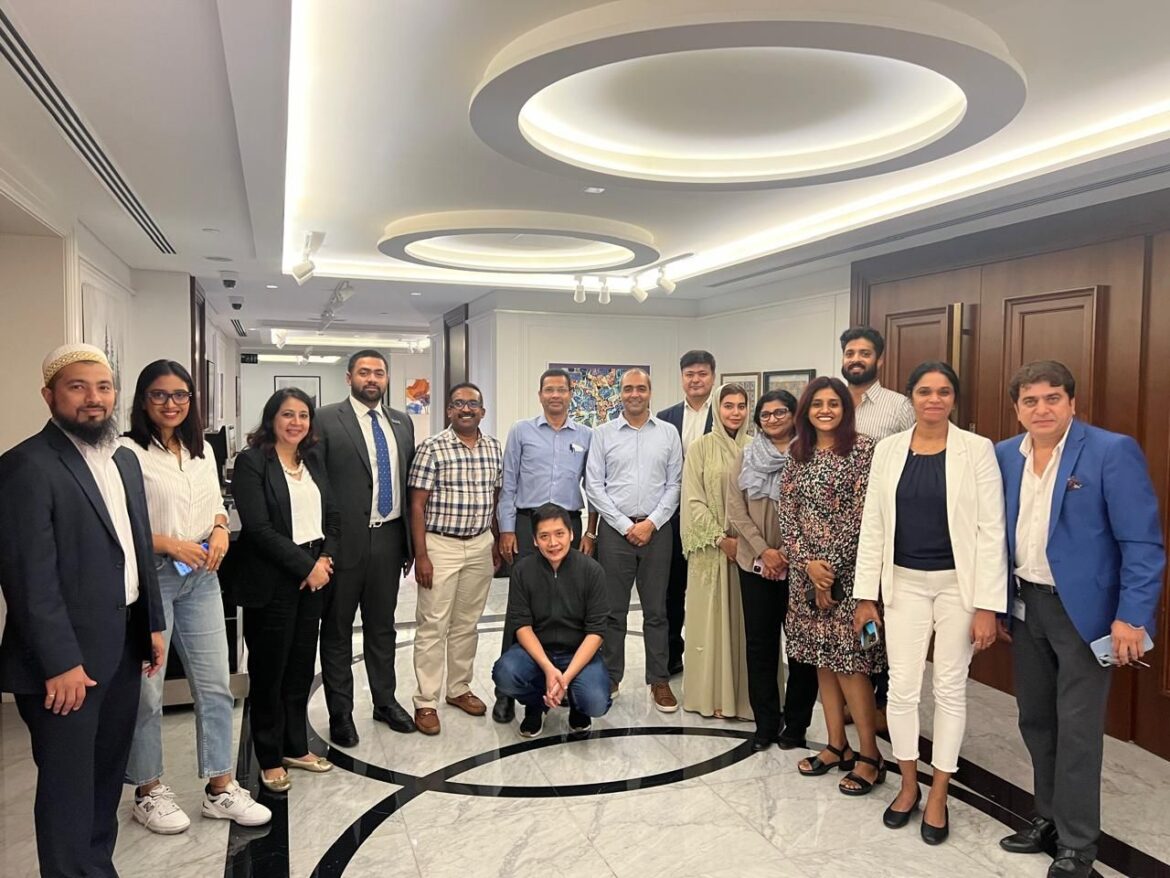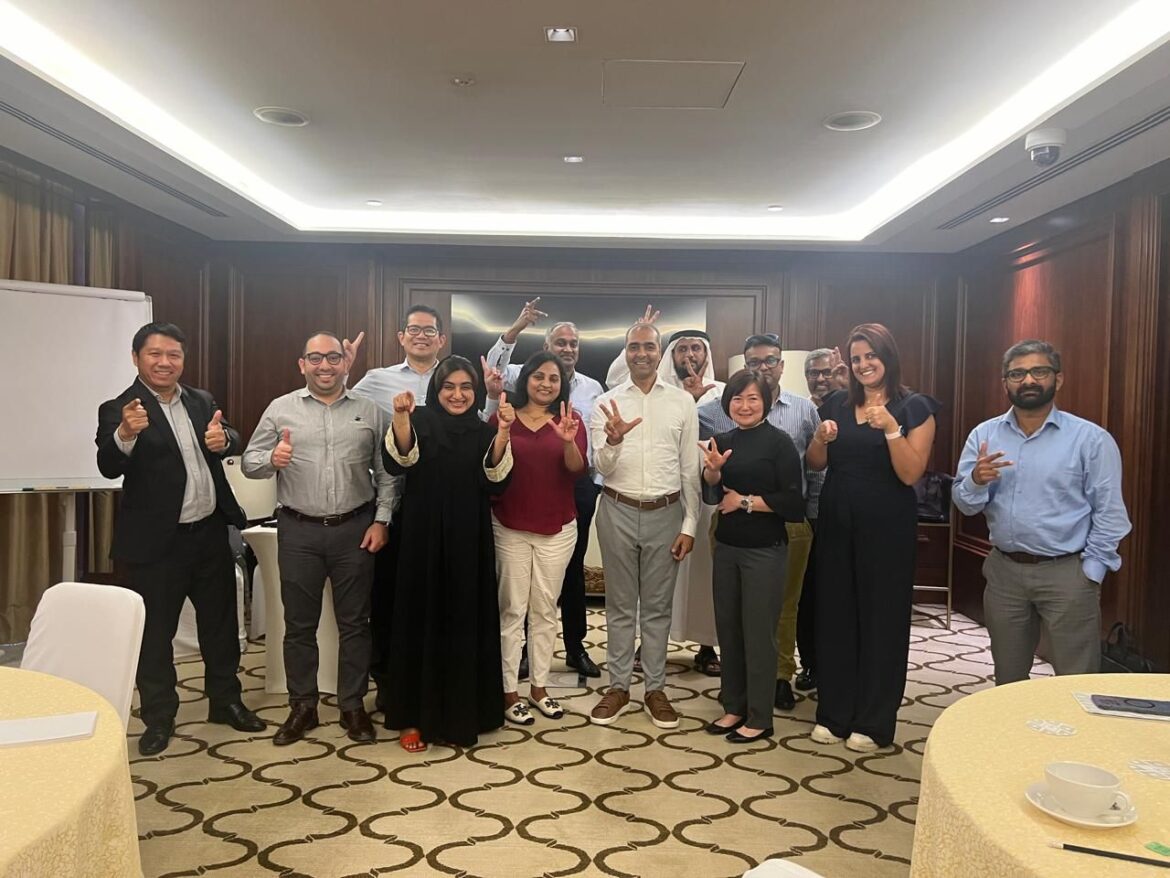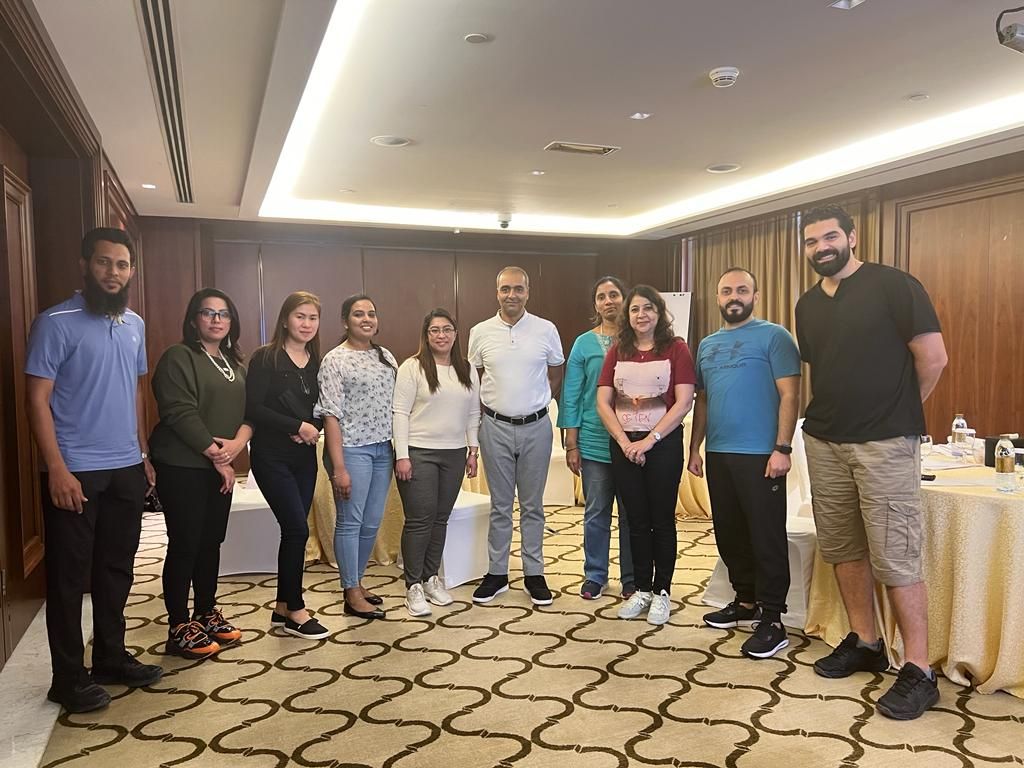At ECUBE Training and Consulting, one of our core beliefs is this:
True leadership development is not just about building capabilities, it’s about creating clarity.
And the most powerful pathway to clarity is coaching.
In every leadership program we deliver, we intentionally weave coaching into the journey, both individually and in groups.
Why?
Because, while workshops build knowledge and skills, coaching transforms awareness into action.
Recently, I facilitated a series of group coaching sessions for 25 senior executives at one of the hashtag#UAE’s largest and most dynamic real estate developers.
Many of them came in with years of experience and a wealth of training under their belt. But after just 90 minutes, the shift was palpable.
One of the leaders said, “It was all in my head, jumbled up. But now, everything’s so clear. I know what I want, how to get there, and I feel strong and capable of moving forward.”
That’s the magic of coaching!
Coaching isn’t about telling people what to do.
It is based on a fundamental truth: you already know what you want, and you already have the inner resources to achieve it.
The missing link is often the time, space, and support to unpack it.
Here’s what coaching unlocks for leaders:
✅ Clarity on what truly matters – not just professionally, but personally.
✅ Recognition of their strengths – and how to use them strategically.
✅ Vision and direction – what they want, where they’re going, and why.
✅ A real strategy – not vague ideas, but step-by-step action.
✅ Confidence and ownership – a deeper belief in their capability.
✅ Accountability and momentum – consistent progress, not just inspiration.
Too often, leaders get stuck in “problem mode.” Or they get caught in passive learning, consuming information but not applying it.
Coaching helps them break out of that loop. It’s the bridge between insight and implementation.
In our work at Ecube Training and Consulting, we’ve seen over and over again that when leaders are coached well, they move with clarity, confidence, and purpose.
And when that happens, everything changes…
Their teams,
Their performance
and
Their impact.
If you’re investing in leadership development, make coaching a core part of the journey. The results will speak for themselves.
realestate
Picture this: You are at a familygathering, and someone says something that does not sit right.
Maybe it is about a touchy family issue, a strained relationship or an unspoken tension in the room that has been bubbling for years.
You want to address it, but you hesitate, wondering if saying anything will make things worse.
Sounds familiar?
In my recent session on DifficultConversations with one of Dubai‘s largest realestate developers, this scenario struck a chord.
Just like with family, workrelationships sometimes mean handling sensitive topics with care. We all have that one conversation we dodge, maybe with a teammate, a manager, or even a long-time colleague, usually for the following reasons:
1. Lack of SelfEsteem that leaves me crippled with emotions such as fear, ego and anxiety
2. Lack of Skill & Competence not knowing where to start or how to respond to disagreements.
But here is the thing…
Managing difficult conversations well can resolveconflicts and lead to better understanding,
During the session, we focused on tools for respectful dialogue, helping people voice their thoughts without sparking defensiveness or damaging trust.
The lesson?
Often, it is not the conversation that is difficult; it is our fear of the unknown. But with the right approach, these moments can bring people closer rather than push them apart.
When was the last time you had one of these moments?
And how would things change if you handled it with courage, patience and transparency?
From ‘Can I Really Do It?’ to ‘Yes, I Can’: The Power of Honest Conversations
Putting away a conversation with someone (manager, colleague, direct report or even a client) because it is difficult, can be severely damaging.
Research proves that having difficultconversations results in engaged employees, retaining talent, innovation and increased well-being.
Giving feedback is a typical example of a difficult conversation at the workplace.
I have noticed how this ‘tough job’ is poorly dealt with, at times never brought up and often relegated to HR.
Here are 7 steps to do it well:
1. Be timely – Don’t wait for too long, nip it in the bud!
2. Contextualize it – Spell out the situation in question where you noticed something amiss, and clarify why this is important and is being brought up.
3. Behavior – State the specific behaviour that caused an impediment
4. Impact – How has that impacted you, the team, and the business; be factual not threatening
5. Explore solutions – Ideally draw the solutions from them through skillful questioning.
6. Get commitment – Finalize a solution and seek commitment to an action.
7. Check-in – Keep a tab on how things are progressing
Facilitating a day’s workshop on ‘handling difficult conversations’ for one of the largest estatedevelopers in UAE was fascinating.
The day was filled with interesting case studies, role-plays, assessment tools and skill-building activities.
Every participant felt engaged and witnessed an internal shift from
‘Can I really do it?’ to ‘Yes I Can’!
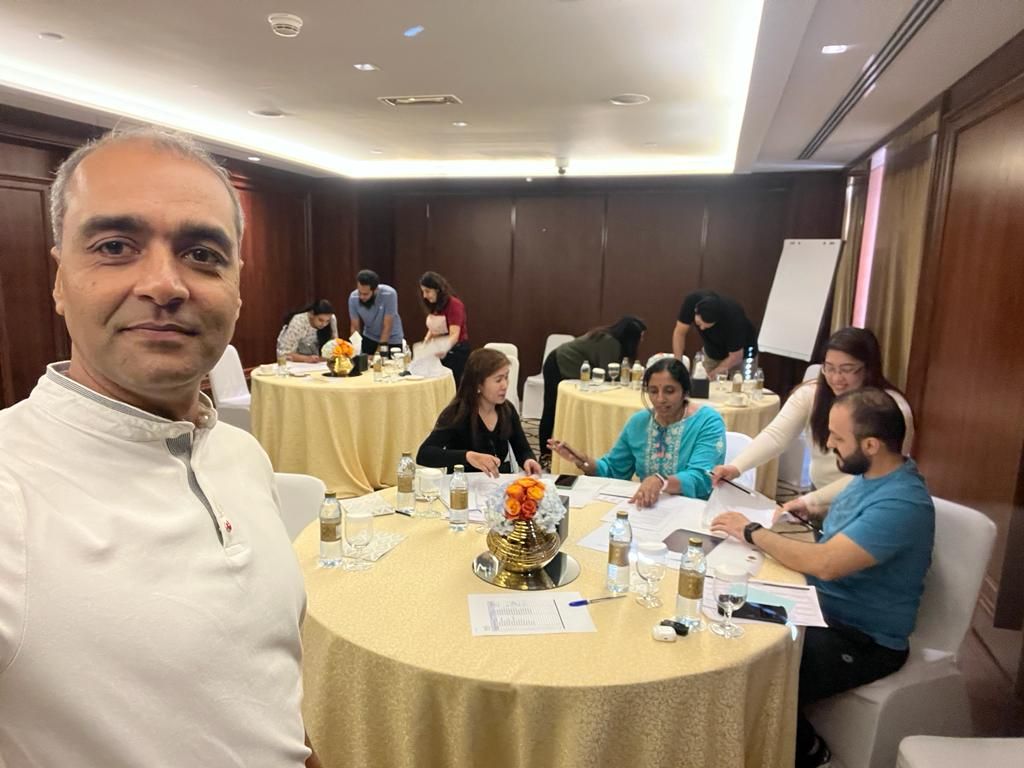
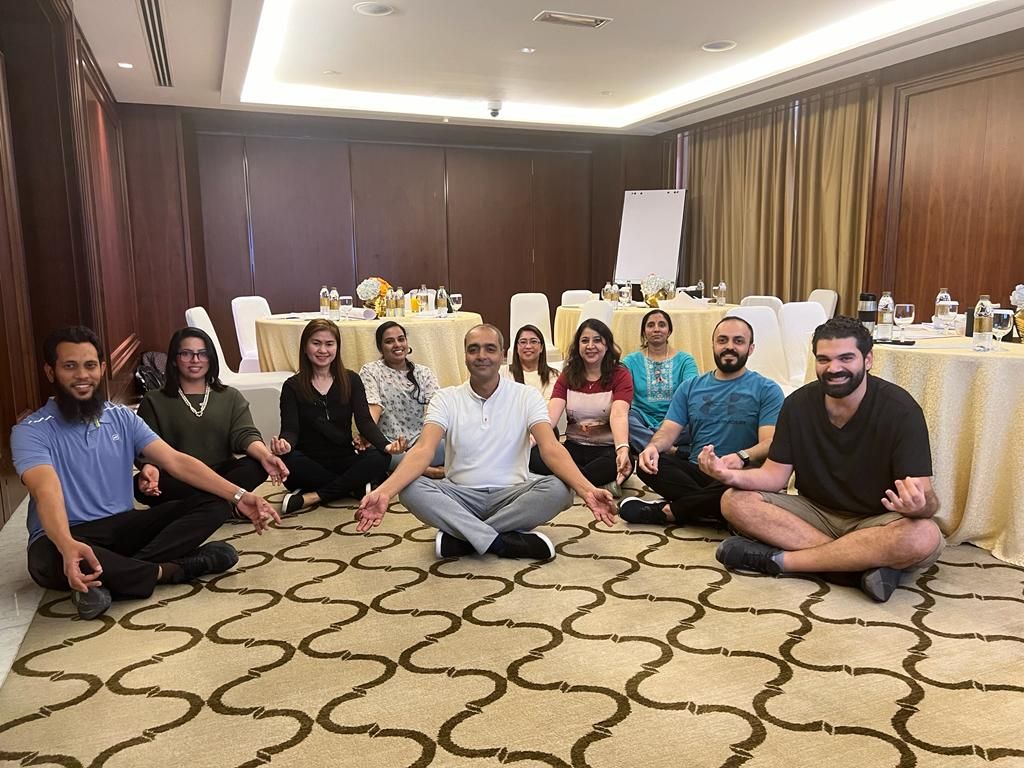
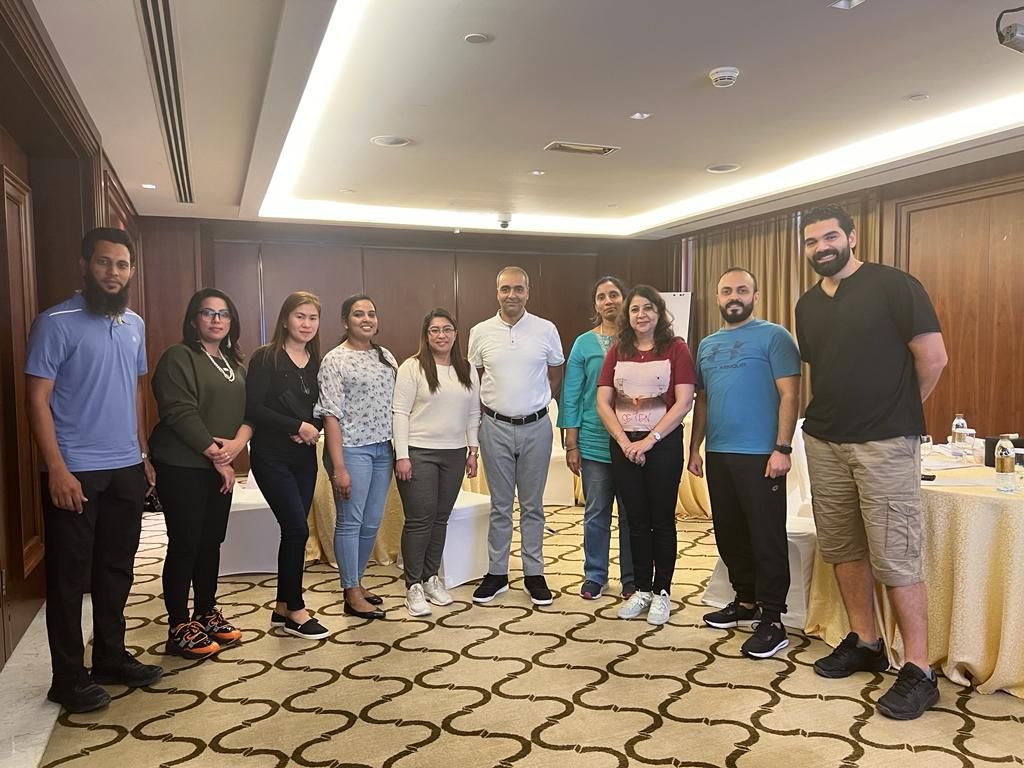
Honored to take a session on Wellness & Resilience for one of the largest realestate companies in UAE recently!
This team now has a high level of awareness and urgency on the subject and is well equipped with practical tips and techniques to look after their own physical, mental, emotional, and social well-being; additionally, they returned with amazing insights to develop their resilience. An experiential session, power packed with Yogasanas, Pranayama, Mindfulness, Meditation and Active Games.
Each one walked away with a concrete DNA (Daily Needed Action) commitment; because they know that if they did prioritise their own wellbeing, no one else would!
